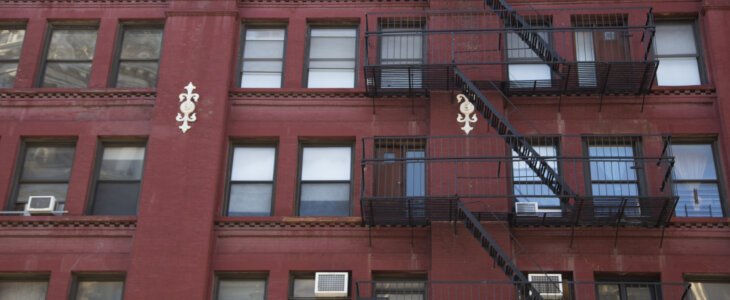The law allows landlords to collect money from tenants upon move-in, which provides the landlord with financial security against unreasonable damage or unpaid rent/fees that a tenant leaves behind when moving out. Unfortunately, some landlords abuse this situation by withholding security deposit funds from departing tenants for improper reasons. Doing so is unlawful, and state and local laws and regulations give tenants the right to seek reimbursement of unfairly withheld security deposits.
Common Reasons Why Landlords Withhold Security
Landlords may withhold or deduct funds from a security deposit for various legitimate reasons, such as for the cost of repairing damage beyond normal wear and tear caused by the tenant or for unpaid rent/utilities. However, landlords may withhold security deposit after a tenant’s lease for unfair or unlawful reasons, including:
- Repairs for ordinary wear-and-tear
- Repairs for vague or unspecific “damage”
- Reimbursement of fees not disclosed to the tenant
- Damages not supported by an itemized receipt
Tenant Rights Regarding Security Deposits
Under New York law, a landlord may require a tenant to pay a security deposit of a maximum value equal to one month’s rent. Landlords who ask for a month’s rent as a security deposit cannot also ask a tenant to pay last month’s rent as a condition of executing the lease. However, a landlord can ask a tenant to pay the difference between the rent under a prior lease and the higher rent under a renewed lease to bring the security deposit up to the new monthly rent.
Although held by landlords, security deposits remain the tenant’s property until a landlord properly exercises their right to deduct amounts from the security. Landlords who own properties with six or more units must place security deposits in a New York bank account, earning interest at the prevailing rate. The tenant has the right to know the bank’s name, address, and the number on the account. Tenants have the right to payment of interest earned on deposited funds annually or at the end of the tenancy or to apply interest to rent payments.
For non-rent-stabilized/controlled units, tenants have the right to the return of their security deposit within 14 days of moving out. Landlords who deduct any funds from a security deposit for property damage must provide the tenant with an itemized receipt describing the damage and the repair cost within 14 days of the tenant’s move-out. Alternatively, the tenant has the right to ask the landlord to inspect the property before moving out so the tenant may repair any damage identified by the landlord.
When a landlord violates a tenant’s security deposit rights, the tenant may seek compensation up to twice the security deposit amount.
Steps to Take If You Think Your Landlord Has Improperly Withheld Your Security Deposit
If your landlord has withheld or deducted money from your security deposit, you can protect your rights and interests by taking the following steps:
- Review your lease’s clauses governing your security deposit.
- Document your property’s condition upon move-in and move-out.
- Request an itemized receipt of damages and incurred repair costs.
- If you believe your landlord has deducted improper damage, send a demand letter highlighting the unfair deductions and requesting a return of those amounts.
If your landlord continues to withhold amounts you believe you deserve, contact an experienced landlord-tenant attorney to discuss your legal rights and options.
How to Avoid Security Deposit Disputes
Tenants can reduce the risk of a dispute over security deposits by conducting move-in/move-out inspections with the landlord present, documenting any repair issues, and photographing the unit’s condition. A tenant who chooses to repair the damage they’ve caused before moving out should obtain a repair agreement with the landlord to avoid disputes over the completeness of the repairs.
Contact a Landlord-Tenant Attorney Today
If you believe your landlord has unfairly withheld your security deposit, an experienced landlord-tenant lawyer can help you understand your legal rights and options for resolving your dispute. Contact Levy Goldenberg LLP today for an initial consultation to learn how our firm can assist you with your matter.
